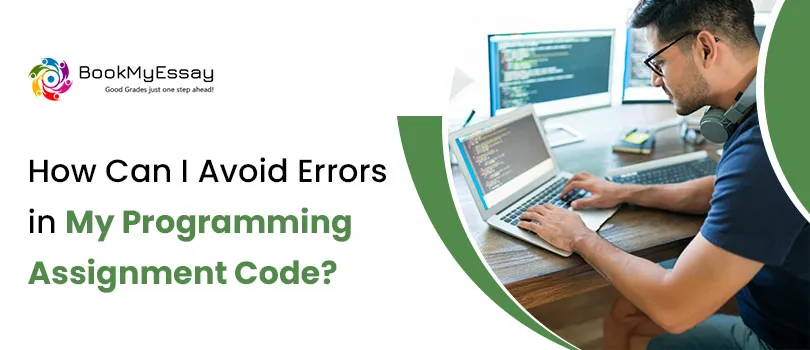Writing clean, error-free code can be a challenge, especially when deadlines are tight and concepts feel overwhelming. Whether you're a beginner or an advanced student, programming assignments require careful planning, logical thinking, and consistent testing. That’s why many students rely on expert Programming Assignment Help from trusted platforms like BookMyEssay to improve code accuracy and save time. If you want to reduce errors and boost the quality of your work—whether you're tackling Python, Java, or seeking specialized ASP.NET Programming Assignment Help—there are proven methods that can make your coding process smoother and more reliable.
1. Understand the Requirements Clearly
One of the biggest sources of programming errors is misunderstanding the assignment instructions. Before writing a single line of code, read the guidelines carefully. Identify the inputs, outputs, and constraints. If anything seems unclear, seek clarification from your instructor or refer to expert sources like BookMyEssay, where professionals can simplify complex requirements and guide you in the right direction.
2. Plan Before You Code
Jumping straight into coding often leads to logical errors. Instead, break the problem into smaller tasks. Create flowcharts or write pseudocode to organize your ideas. Planning helps avoid confusion and reduces the need for major revisions later. For structured languages like C++ or Java, planning ensures your classes, functions, and modules are well-organized from the start.
3. Follow Coding Standards
Consistent formatting helps you—and others—spot errors easily. Use proper indentation, meaningful variable names, and clear comments. Following best practices not only improves readability but also reduces the risk of misplaced brackets, incorrect scopes, and other syntax issues. Students working on web application development often prefer ASP.NET Programming Assignment Help from BookMyEssay because experts ensure the code follows industry-level standards.
4. Test Early and Often
Testing isn’t something to leave until the end. Run your code after completing each small section. Early testing helps you catch bugs before they become difficult to trace. Try different test cases, including edge cases, unexpected inputs, and extreme values. This approach improves the reliability and robustness of your code.
5. Debug Systematically
When an error occurs, avoid guessing. Use debugging tools available in your IDE. Add print statements, check variable values, and isolate problematic sections. For example, ASP.NET developers can use Visual Studio’s powerful debugging features to step through code line by line. Experts providing Programming Assignment Help through BookMyEssay often teach students advanced debugging techniques to minimize time spent troubleshooting.
6. Learn from Mistakes
Errors are a natural part of programming. Instead of feeling frustrated, analyze them. Understand what caused the mistake and document it. Over time, you’ll start recognizing patterns and avoiding repeated errors, which leads to improved coding efficiency and confidence.
Conclusion
Avoiding errors in programming assignments requires patience, planning, and continuous learning. Whether you're dealing with simple scripts or complex frameworks, these strategies can significantly improve your code accuracy. And when you need expert guidance, BookMyEssay’s Programming Assignment Help and ASP.NET Programming Assignment Help services offer reliable support from experienced professionals. With the right approach and assistance, you can confidently write clean, error-free code every time.





 3 Bellbridge Dr, Hoppers Crossing, Melbourne VIC 3029
3 Bellbridge Dr, Hoppers Crossing, Melbourne VIC 3029




